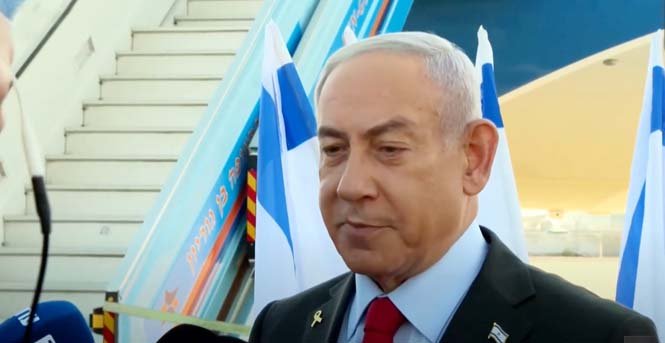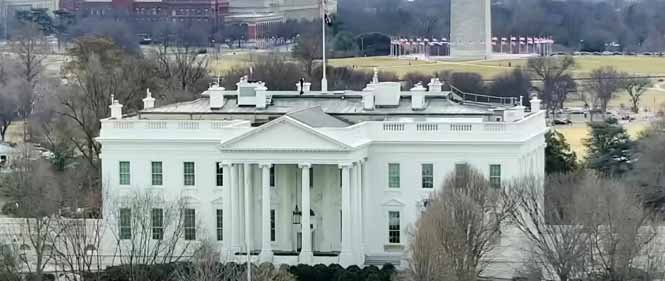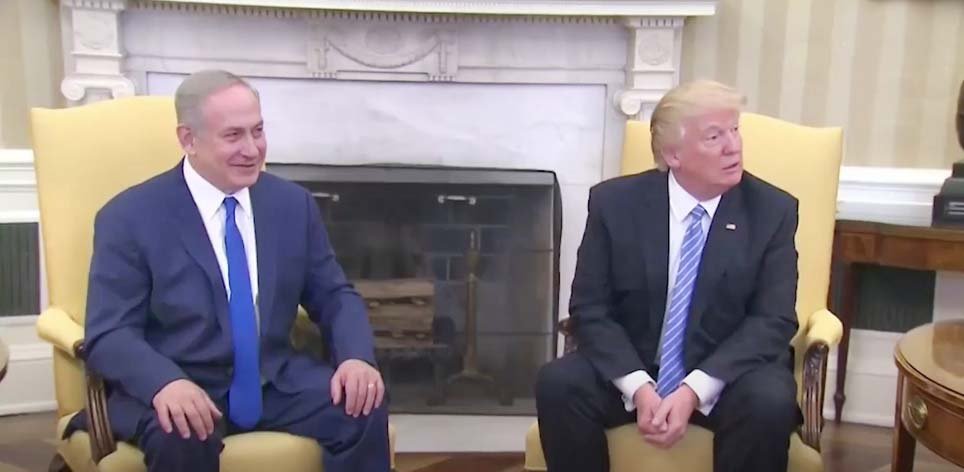Israeli Prime Minister Benjamin Netanyahu is set to travel to the United States for critical talks with President Donald Trump, focusing on the ongoing Gaza conflict and broader Middle East peace efforts. The meeting, scheduled for later this week, comes amid escalating tensions in the region and growing international concern over the humanitarian crisis in Gaza.
According to a report by The New York Times, the discussions are expected to address Israel’s military strategy in Gaza, the potential for a ceasefire, and the future of U.S.-Israel relations under a possible second Trump administration. The meeting highlights the enduring influence of Trump in Middle East diplomacy, even after his presidency.
The Context: Gaza Conflict and U.S.-Israel Relations
The Gaza conflict has been a longstanding issue, with recent escalations leading to significant casualties and widespread destruction. A report by BBC News highlights that over 2,000 Palestinians and 70 Israelis have lost their lives in the latest round of violence, with thousands more injured or displaced. The humanitarian crisis in Gaza has drawn global attention, with calls for immediate action to alleviate suffering.
Netanyahu’s visit to the U.S. underscores the close ties between Israel and the United States, particularly during Trump’s presidency. Trump’s administration was known for its strong support of Israel, including the controversial recognition of Jerusalem as Israel’s capital and the brokering of the Abraham Accords, which normalized relations between Israel and several Arab nations.
What’s on the Agenda?
The talks between Netanyahu and Trump are expected to cover several key issues:
- Gaza Ceasefire Efforts: Both leaders will likely discuss strategies to de-escalate the conflict and establish a sustainable ceasefire.
- Humanitarian Aid: The delivery of aid to Gaza, which has been severely impacted by the conflict, will be a priority.
- U.S.-Israel Relations: The meeting will also explore ways to strengthen bilateral ties, especially in light of potential changes in U.S. leadership.
According to Al Jazeera, Netanyahu is expected to seek Trump’s support for Israel’s security concerns while addressing international criticism of its military actions in Gaza.
The Human Angle: Voices from Gaza
Amid the high-level discussions, the human cost of the conflict remains stark. A report by The Guardian shares the story of Ahmed, a Gaza resident who lost his home and family in an airstrike. “We have nothing left,” Ahmed said. “The world talks about peace, but we need action, not words.”
Stories like Ahmed’s highlight the urgent need for a resolution to the conflict. The talks between Netanyahu and Trump could have far-reaching implications for the people of Gaza, who continue to endure unimaginable hardships.
Broader Implications for International Relations
The meeting also has significant implications for international diplomacy. The U.S. has historically played a central role in mediating Middle East conflicts, and Trump’s involvement could signal a shift in approach.
According to Foreign Policy, the talks could influence the Biden administration’s strategy in the region, particularly as it seeks to balance support for Israel with calls for Palestinian rights. The outcome of the discussions may also impact relations between Israel and neighboring Arab states, many of which have recently normalized ties with Israel.

Quotes from Key Figures
- Benjamin Netanyahu: “Israel’s security is non-negotiable. We are committed to protecting our people while seeking a path to peace.”
- Donald Trump: “The U.S. stands with Israel. Together, we can achieve a lasting solution to the conflict.”
- Ahmed, Gaza Resident: “We are not just numbers. We are human beings who deserve to live in peace.”
Detailed Analysis of the Gaza Conflict
The Gaza conflict is rooted in decades of political, territorial, and religious disputes. The recent escalation began with [specific event], leading to a series of violent confrontations. According to a report by CNN, the conflict has resulted in significant infrastructural damage in Gaza, with hospitals, schools, and residential areas being heavily impacted.
The international community has called for an immediate ceasefire, with organizations like the United Nations and the Red Cross working tirelessly to provide aid. However, the complexity of the conflict, involving multiple factions and international stakeholders, makes finding a resolution challenging.
The Role of the U.S. in Middle East Peace
The United States has long been a key player in Middle East peace negotiations. During Trump’s presidency, the U.S. took several controversial steps, such as moving the U.S. embassy to Jerusalem and cutting aid to Palestinian authorities. These actions were seen as strongly pro-Israel and sparked widespread criticism.
According to Reuters, the Biden administration has taken a more balanced approach, advocating for a two-state solution and reinstating aid to Palestinians. However, the upcoming talks between Netanyahu and Trump could complicate the current administration’s efforts, especially if Trump’s influence sways public opinion or policy directions.
Potential Outcomes of the Talks
The discussions between Netanyahu and Trump could lead to several potential outcomes:
- Ceasefire Agreement: A renewed push for a ceasefire, potentially involving international mediators.
- Humanitarian Corridors: Establishment of safe zones and corridors for the delivery of aid to Gaza.
- Policy Shifts: Changes in U.S. policy towards Israel and Palestine, depending on the political landscape.
According to The Washington Post, the success of these talks could set the stage for future negotiations and influence the broader geopolitical dynamics in the Middle East.

Summary
Israeli Prime Minister Benjamin Netanyahu’s upcoming meeting with President Donald Trump marks a pivotal moment in the ongoing Gaza conflict and U.S.-Israel relations. The discussions will focus on ceasefire efforts, humanitarian aid, and strengthening bilateral ties. As the world watches, the human cost of the conflict remains a stark reminder of the urgent need for peace.
Related Video (Video Link)
Sources
- The New York Times: Netanyahu to Meet Trump for Gaza Talks
- BBC News: Gaza Conflict: Latest Updates
- Al Jazeera: Netanyahu Seeks Trump’s Support
- The Guardian: Voices from Gaza
- Foreign Policy: U.S.-Israel Relations Under Scrutiny
- CNN: Impact of Gaza Conflict on Infrastructure
- Reuters: Biden Administration’s Middle East Policy
- The Washington Post: Potential Outcomes of Netanyahu-Trump Talks

